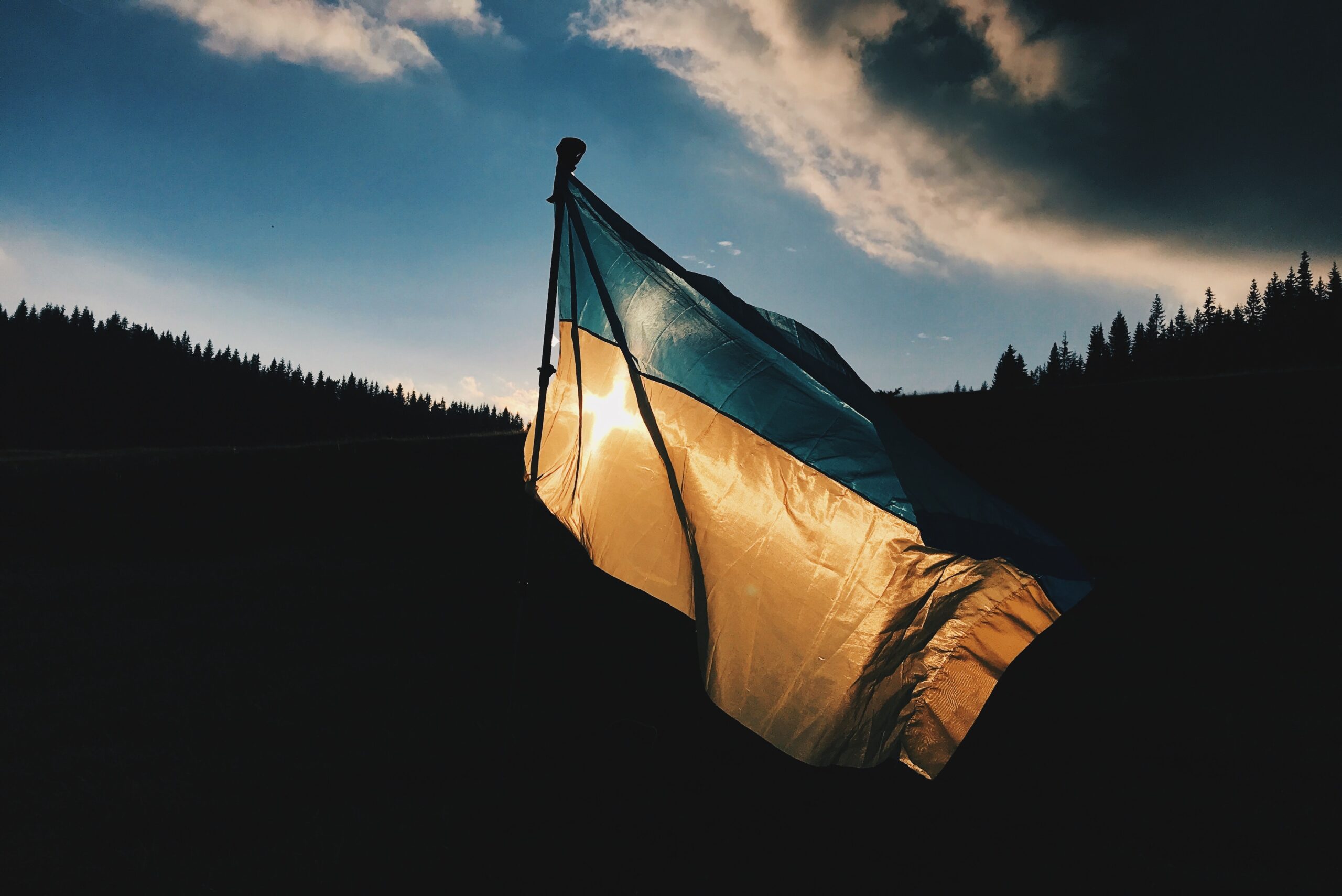
By Sarah DeLoach
It is difficult to overstate the wide-ranging ripple effects of Russia’s devastating invasion of Ukraine.[1] Situated amongst immense political turmoil and economic upheaval, Ukraine now faces an acute child protection crisis.[2] In addition to mass deaths and injuries, the escalation of armed conflict and ongoing violence has resulted in the displacement of more than half of all Ukrainian children.[3] This dire situation has yielded international support[4], including several American families’ desire to adopt children suffering in a war-torn Ukraine.
Ukraine has long been one of the United States’ most frequent international adoptions partners.[5] In 2020, Ukraine surpassed China to become the country with the highest number of adoptions to the United States, accounting for over 10% of all intercountry adoptions.[6] In 2021 alone, 235 Ukrainian children were adopted by American citizens.[7]
This longstanding partnership between the United States and Ukraine is now met with legal limitations as a result of war. The primary legal limitation prospective adoptive parents face is establishing the identity and family status of displaced children they seek to adopt.[8] Under the Immigration and Nationality Act, an American citizen may only adopt foreign children who are orphans.[9] Because the war is ongoing, it is difficult to determine orphan status, and temporary displacement does not suffice.[10] Additionally, prospective adoptive parents may not adopt a child unless parental rights have been terminated.[11] To proceed with every desired international adoption would preclude the potential for Ukrainian children to experience reunification with their birth families.[12] Ukraine’s Ministry of Policy emphasized that intercountry adoption is impossible under current conditions.[13] Moreover, the Ministry reiterated that at least two years must elapse during which all possible steps are taken to trace and reunite children with their family members before adoption may even be considered.[14]
The United States recently echoed Ukraine’s sentiments. The National Council for Adoption released a statement on May 31, 2022, cautioning those who desire to adopt from Ukraine as a “response to the war” and urging Americans to abide by legal adoption parameters.[15] Other organizations, like Save the Children, add that adopting during a crisis comes with heightened risks of children entering situations of abuse, exploitation, trafficking, and neglect.[16]
The more legally pressing matter is the fate of Ukrainian children who were already in the process of being adopted by American families prior to the war. For instance, the war has paused a Maine family’s plan to adopt two boys.[17] The Bell family traveled to Ukraine for their required State Department of Adoption appointment in late January 2022, despite the risks associated with traveling as Russian troops gathered at the border.[18] While the Bells made progress towards a final hearing, they did not finalize the adoption by the time Russia invaded Ukraine.[19] Because the children are in the midst of the adoption process, they are ineligible for tourist visas and unable to enter the United States without a Ukrainian judge granting custody to the Bells.[20]
Similarly, a Virginia family planned to adopt a Ukrainian child they hosted as part of an exchange program.[21] Like the Bells, the war interrupted the Bradshaw family’s plans.[22] While the family had the opportunity to visit their prospective child after she was relocated to a Romanian orphanage, the family continues to wait for normal adoption operations to resume.[23]
The Bells and Bradshaws are amongst a group of prospective adoptive parents whose only remaining option is for the federal government to allow their prospective children to enter the United States.[24] The group has lobbied Ukrainian adoption authorities, State Department officials, and members of Congress to raise awareness for their cause.[25]
Through a bipartisan effort, members of Congress have recently written a letter to Secretary of State Antony Blinken championing these families.[26] The letter—signed by over 70 members—advocates for “immediately uniting American host families with Ukrainian children who are already engaged in the adoption process,” particularly those who have already established a relationship with the child.[27]
The National Council for Adoption offered some hope with their May 31, 2022, message, confirming that courts in Ukraine are allowing adoption cases with official referrals to move forward, pending certain factors.[28] Russia’s invasion of Ukraine illustrates how war permeates all aspects of life, including the legal process of intercountry adoption. The response from the American public and lawmakers alike illustrates the power of support and the necessity of proper legal instruments to facilitate that support.
[1] Patrick Whittle, Adoptions Another Facet of Life Halted by the War in Ukraine, AP NEWS (May 21, 2022), https://apnews.com/article/russia-ukraine-government-and-politics-international-adoption-bde315a36a6a3fda65984e9c9ef1f7c2.
[2] Pamela Falk, After Nearly 100 Days of War, Two Out of Three Children in Ukraine Are Displaced, CBS News (June 1, 2022), https://www.cbsnews.com/news/ukraine-children-displaced-100-days-war/.
[3] More Than Half of Ukraine’s Children Displaced After One Month of War, UNICEF (Mar. 24, 2022), https://www.unicef.org/press-releases/more-half-ukraines-children-displaced-after-one-month-war.
[4] Ukraine Support Tracker, Inst. for the World Econ., https://www.ifw-kiel.de/topics/war-against-ukraine/ukraine-support-tracker/
[5] Whittle, supra note 1.
[6] Id.
[7] U.S. Dept. of State, Annual Report on Intercountry Adoption (2022), https://travel.state.gov/content/dam/NEWadoptionassets/pdfs/FY21%20Annual%20Report%20on%20Intercountry%20Adoption.pdf.
[8] Whittle, supra note 1.
[9] Meghan Bragg, No, You Can Not Start An Adoption for a Child in Ukraine Right Now, WCNC (April 18, 2022), https://www.wcnc.com/article/news/verify/ukraine-adoption-war-verify/275-3759958e-74e1-4f7c-b959-b4c46a8f58cb (explaining the Act considers someone an orphan if their parents dies, disappears or abandons them).
[10] Id.
[11] Ryan Hanlon, Regarding Refugee Children Fleeing the War in Ukraine, Nat’y Couns. for Adoption (Feb. 28, 2022), https://adoptioncouncil.org/blog/regarding-refugee-children-fleeing-the-war-in-ukraine/.
[12] Bragg, supra note 9.
[13] Ukraine – Ministry of Social Policy Statement on Intercountry Adoption, U.S. Dep’t of State (Mar. 21, 2022), https://travel.state.gov/content/travel/en/News/Intercountry-Adoption-News/ukraine—ministry-of-social-policy-statement-on-intercountry-ad.html.
[14] Id.
[15] Hanlon, supra note 11.
[16] Ukraine Crisis: Save the Children Calls for Immediate Halt on Intercountry Adoptions to Keep Children Safe, ReliefWeb (Mar. 22, 2022), https://reliefweb.int/report/ukraine/ukraine-crisis-save-children-calls-immediate-halt-intercountry-adoptions-keep.
[17] Susan Sharon, The War in Ukraine Has Derailed One American Family’s Adoption Plan, NPR (Mar. 9, 2022), https://www.npr.org/2022/03/09/1085306040/the-war-in-ukraine-has-derailed-one-american-familys-adoption-plan.
[18] Id.
[19] Id.
[20] Id.
[21] Dana Hedgpeth, A Virginia Family’s Push to Give a Ukrainian Orphan Respite From War, Washington Post (July 24, 2022), https://www.washingtonpost.com/dc-md-va/2022/07/24/ukraine-girl-adoption-virginia-family/.
[22] Id.
[23] Id.
[24] Id.
[25] Id.
[26] Letter from Congress to Antony Blinken, U.S. Sec’y of State (Mar. 22, 2022).
[27] Id.
[28] Hanlon, supra note 11.

